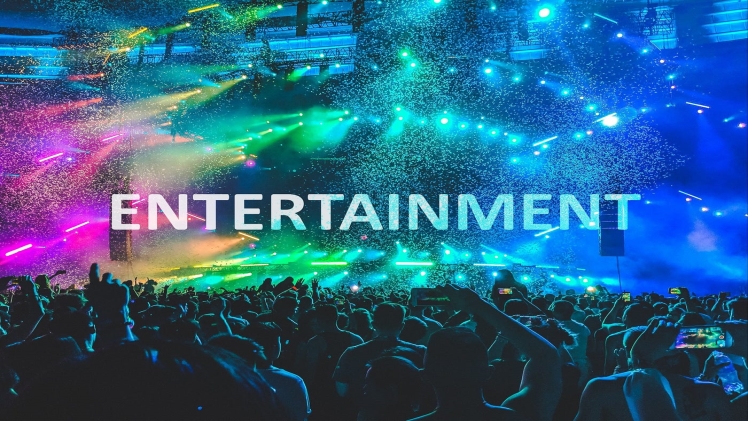Entertainment has been a fundamental aspect of human life for millennia. From ancient rituals and performances to today’s immersive digital experiences, the way we seek and engage with entertainment has evolved dramatically. This article explores the journey of entertainment through the ages, highlighting key developments and how they have shaped our contemporary entertainment landscape.
Ancient Beginnings
Entertainment in ancient civilizations often revolved around communal gatherings and religious ceremonies. In ancient Greece, for instance, theater was not merely a form of entertainment but also a significant cultural and religious practice. The Greeks introduced the concept of dramatic festivals where playwrights like Aeschylus, Sophocles, and Euripides presented their works to the public. These performances were held in open-air amphitheaters and featured a mix of tragedy, comedy, and satire.
Similarly, in ancient Rome, entertainment was closely tied to social and political events. The Romans enjoyed gladiatorial contests, chariot races, and theatrical performances. The Colosseum stands as a testament to their love for grand spectacles, where thousands would gather to witness these events. These early forms of entertainment laid the foundation for various performance arts that continue to be popular today.
The Renaissance and Beyond
The Renaissance period marked a significant shift in the nature of entertainment. This era saw the flourishing of arts and culture, with a particular emphasis on the visual arts and music. The invention of the printing press by Johannes Gutenberg in the mid-15th century revolutionized the way people consumed entertainment. Books became more accessible, leading to an explosion of literary works and the popularization of storytelling.
In addition, the Renaissance brought about a renewed interest in theater. Playwrights such as William Shakespeare and Christopher Marlowe wrote complex plays that explored human nature and social issues. Shakespeare’s works, in particular, have had a lasting impact on both literature and theater, with his plays still performed and studied around the world.
The Birth of Modern Entertainment
The 19th and early 20th centuries were pivotal in shaping modern entertainment. The invention of film and radio brought about new ways for people to experience stories and music. The Lumière brothers’ first public film screening in 1895 marked the beginning of cinema as we know it. This was followed by the rise of Hollywood and the golden age of film, which introduced iconic stars and memorable movies.
Radio, which became popular in the 1920s, offered a new medium for music, news, and serialized dramas. It allowed people to experience live broadcasts and stay connected to global events. The advent of television in the 1940s further transformed entertainment by providing a visual medium for shows, movies, and news. Television became a central part of daily life, influencing popular culture and providing a platform for new forms of entertainment.
The Digital Revolution
The late 20th and early 21st centuries brought about the digital revolution, which has dramatically altered the entertainment landscape. The rise of the internet has led to the proliferation of digital content, including streaming services, social media, and online gaming. Platforms like Netflix, Hulu, and Disney+ have changed the way people consume television and film, offering on-demand access to a vast library of content.
Social media platforms such as Facebook, Twitter, and Instagram have created new forms of interactive entertainment, allowing users to engage with content and each other in real-time. This has given rise to new entertainment genres, including viral videos, memes, and influencer content.
Video games have also evolved significantly, with advancements in technology creating increasingly immersive and interactive experiences. Modern video games offer sophisticated graphics, complex narratives, and multiplayer capabilities, providing players with a dynamic and engaging form of entertainment.
The Future of Entertainment
As technology continues to advance, the future of entertainment is poised for even more innovation. Virtual reality (VR) and augmented reality (AR) are set to play a significant role in shaping the entertainment industry. VR offers fully immersive experiences, allowing users to explore virtual worlds and engage with content in new ways. AR, on the other hand, overlays digital content onto the real world, creating interactive and enhanced experiences.
Artificial intelligence (AI) is also expected to influence entertainment by personalizing content recommendations and creating new forms of interactive storytelling. AI-driven algorithms can analyze user preferences and suggest tailored content, while AI-generated content could lead to novel forms of creativity and entertainment.
In conclusion, entertainment has come a long way from its ancient roots, evolving through various forms and mediums to become the diverse and dynamic industry we know today. As technology continues to advance, it will undoubtedly bring about new changes and innovations, further enriching our experiences and shaping the future of entertainment. Whether through the grand spectacles of ancient Rome or the immersive digital experiences of tomorrow, the quest for entertainment remains a central and enduring part of the human experience.
